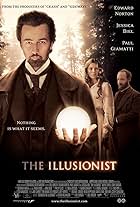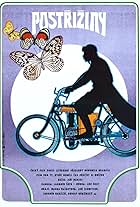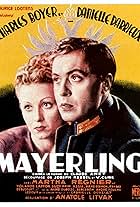Advanced search
- TITLES
- NAMES
- COLLABORATIONS
Search filters
Enter full date
to
or just enter yyyy, or yyyy-mm below
to
to
to
Exclude
Only includes titles with the selected topics
to
In minutes
to
1-45 of 45
- Two young people meet. A fateful encounter - the proverbial love at first sight. He is Emperor Franz Joseph of Austria-Hungary, she is Elisabeth von Wittelsbach, Princess of Bavaria and the sister of the woman Franz is to marry.
- In turn-of-the-century Vienna, a magician uses his abilities to secure the love of a woman far above his social standing.
- In the first of a trilogy of movies about Elisabeth "Sissi" of Austria, the vibrant young princess catches the eye of her sister's fiancé, Emperor Franz Josef.
- Countess Irma finds Empress Sisi in Greece, away from the etiquette of the Austro-Hungarian court. They live in freedom, but no matter how much they resist, in the end they are left with only one fatal path that will bind them forever.
- When Prussia and Austria declare war on Denmark, two brothers are called to serve in the bloodiest battle in Denmark's history.
- Based on real life events that led to tragic deaths of Crown Prince Rudolf of Austria and his lover Baroness Mary Vetsera.
- An Italian Countess is allied with Nationalists during the Italian-Austrian war of unification. However, she risks betraying their cause when she falls in love with an Austrian lieutenant.
- On March 15, 1848, a young firebrand poet, Sándor Petöfi ignites the Hungarian Revolution with his passionate 'National Song', prompting the Austrians to dispatch a ruthless secret agent to assassinate him and suppress the uprising.
- The second in a trilogy of movies about Elisabeth "Sissi" of Austria, the film chronicles the married life of the young empress as she tries to adjust to formal and strict life in the palace and an overbearing mother-in-law.
- In a time of war and disease, a young officer gallantly tries to help a young woman find her husband.
- Another of Napoleon's adventures in this epic reconstruction of the battle of Austerlitz, where he had the greatest victory of his career, over the Russians.
- An evocation of the childhood memories of Bohumil Hrabal in his provincial town of Nymburk, dominated by the local brewery.
- Napoléon Bonaparte's life, loves and exceptional destiny from 1769 to 1821, but as seen through the eyes of Talleyrand, the cynical and ironic politician who once was the Emperor of France's Minister of Foreign Affairs.
- A dramatic retelling of the life of Ludwig II, King of Bavaria, one of the most fascinating monarchs of modern times. From his accession to the throne at age 18 to his passionate support of Richard Wagner and his music; from his ingenuous political commitment to his obsessive construction of extravagant palaces and his gradual withdrawal into a lonely dream world. An epic narrative of breathtaking grandeur.
- For Balduin, going out to beer parties with his fellow students and fighting out disputes at the tip of the sword have lost their charms. He wants to find love; but how would he, a penniless student, ever dare looking up to any woman worth of loving? Absorbed in his dreary thoughts and indifferent to the advances of Lyduschka, Balduin is unexpectedly offered a fortune by the mysterious money-lender Scapinelli - but on a strange condition...
- Rodolfe, Crown Prince of Austria, is fettered on all sides. He's bored; his father, the emperor, is domineering; his politics are more liberal than his father's, but he knows his views carry no weight. He agrees to marry a princess to sire an heir, then spends his nights as a playboy. In 1888, he meets Marie Vetsera, 17, a baroness' daughter. She is resolute, smitten, and wants nothing in return for her love. The Prime Minister is alarmed; he contrives to have her sent away. Rodolfe sinks into dissipation. When she returns, how will the lovers handle the opposition of society and their families? Can he find a way for them to be together?
- A news-reel like movie about early part of the French Revolution, shown from the eyes of individual people, citizens of Marseille, counts in German exile and, of course the king Louis XVI, showing their own small problems.
- Set in the time of Napoleon wars, shows how the wars swept over the unfortunate Polish country at the beginning of the 19th century. Story revolves around the Polish legion under command of General Dabrowski, who then fought on Napoleon's side with the hopes of Poland's revival.
- A blind pianist living in 18th-century Vienna forms an extraordinary relationship with the physician who is trying to restore her sight.
- The romantic "Sissi" trilogy condensed into one film. Emperor Franz Joseph of Austria falls in love with young princess Elisabeth.
- Elisabeth, a happy girl living in Bavaria, loves her family and animals, and has a rebellious soul.
- Filmed operetta in Technicolor based on hit play/book that opened on Broadway in 1922 and ran 232 performances.
- This epic story takes place between 1820 and 1860 during the Habsburg Monarchy, and portrays the life one of the greatest Hungarian aristocrats - Count Széchenyi - who was born with extra-ordinary mental and spiritual talents. In the years following the fall of Napoleon the young count Széchenyi irresponsibly seduces his brother's wife, and the consequent scandal ruins his career as an army officer. After the sudden death of his humiliated lover Count Széchenyi drastically changes his character from that of a shallow young man into a responsible nobleman seeking to conquer his fate by creating great achievements in his remaining life. A great friendship and a special new love help the count to overcome all other obstacles. Széchenyi becomes one of the most famous politicians of his time. He is chosen as the leader of the opposition, and as such he becomes the enemy of the Habsburgs. However, Széchenyi has never intended to go against his aristocratic upbringing and to be part of a cause, which aims to destabilize the Habsburg Monarchy. Feeling responsible for the unleashed tensions within the Monarchy he strives to serve as the cause of reconciliation. He initiates the building of a grand bridge over the Danube, which is to become a symbolic link between the West and the East in Europe. However, his reputation and influence assume such proportions that when the Monarchy is shaken to its foundations by the revolutions of 1848 he is driven insane by his thoughts of self-incrimination. While mentally deranged and locked away in a private sanatorium near Vienna Széchenyi's nightmares become a reality. The Habsburgs exact cruel retribution for the 1848 rebellion in the Hungarian province. Széchenyi's friends are executed while his rebellious country sinks into an apathy equal to his own. Now an old man, Széchenyi miraculously regains his former self. With renewed energy the old count launches into a rejuvenating program for his beloved country initiating his last great gamble against the Habsburg Empire.
- From the late 18th thru the early 19th century Talleyrand, known for his skill at compromise, serves 6 regimes.A George Arliss style vehicle gave Guitry, accused of opportunism during the Occupation, a chance to defend himself.
- Count Wolkersheim attends the 1815 Vienna Congress to negotiate,to the Countess joy. Political concerns and music mix in a waltzing city, their apparently opposite attitudes testing their love. Will she behave or will he learn to waltz?
























